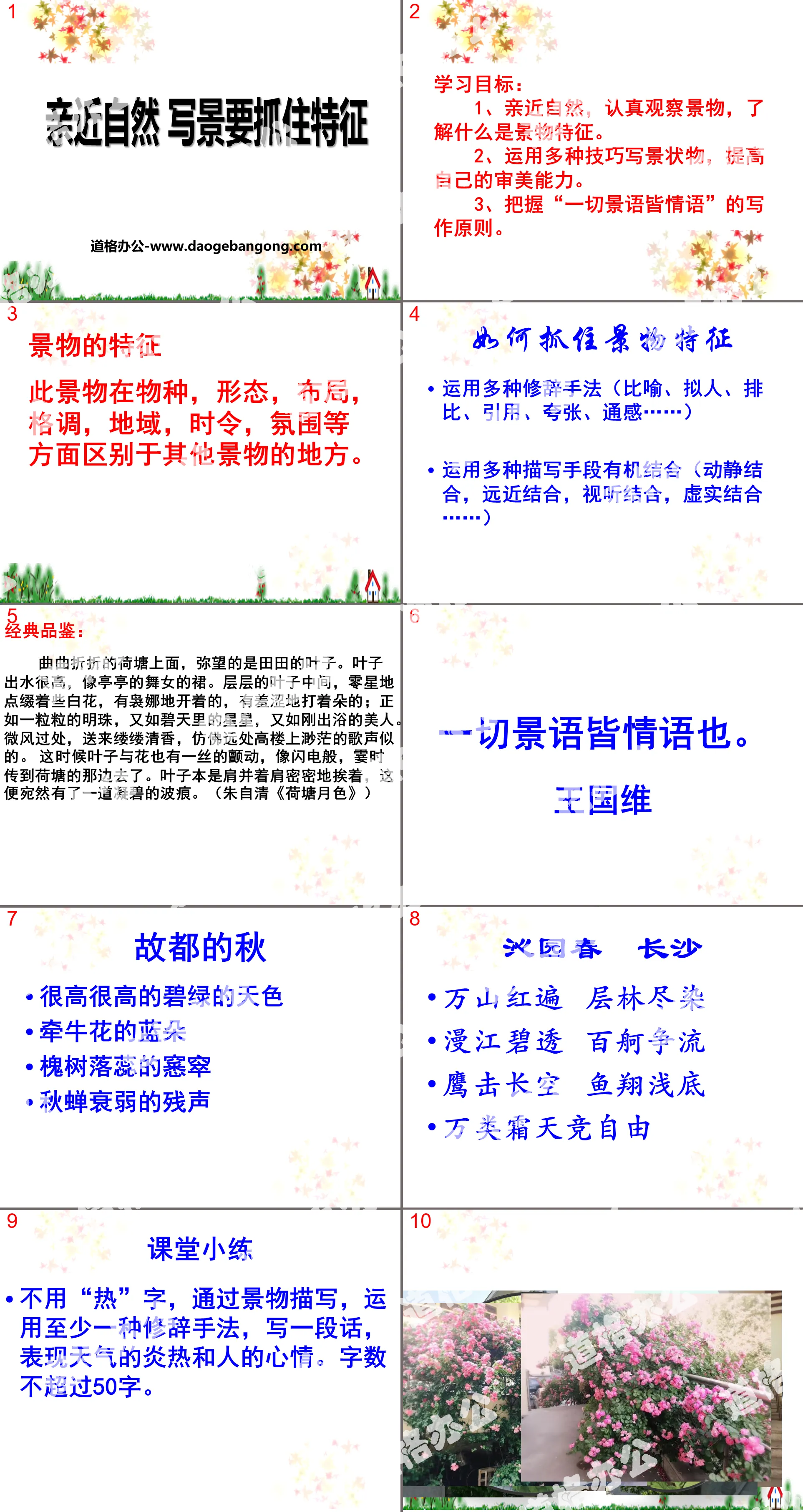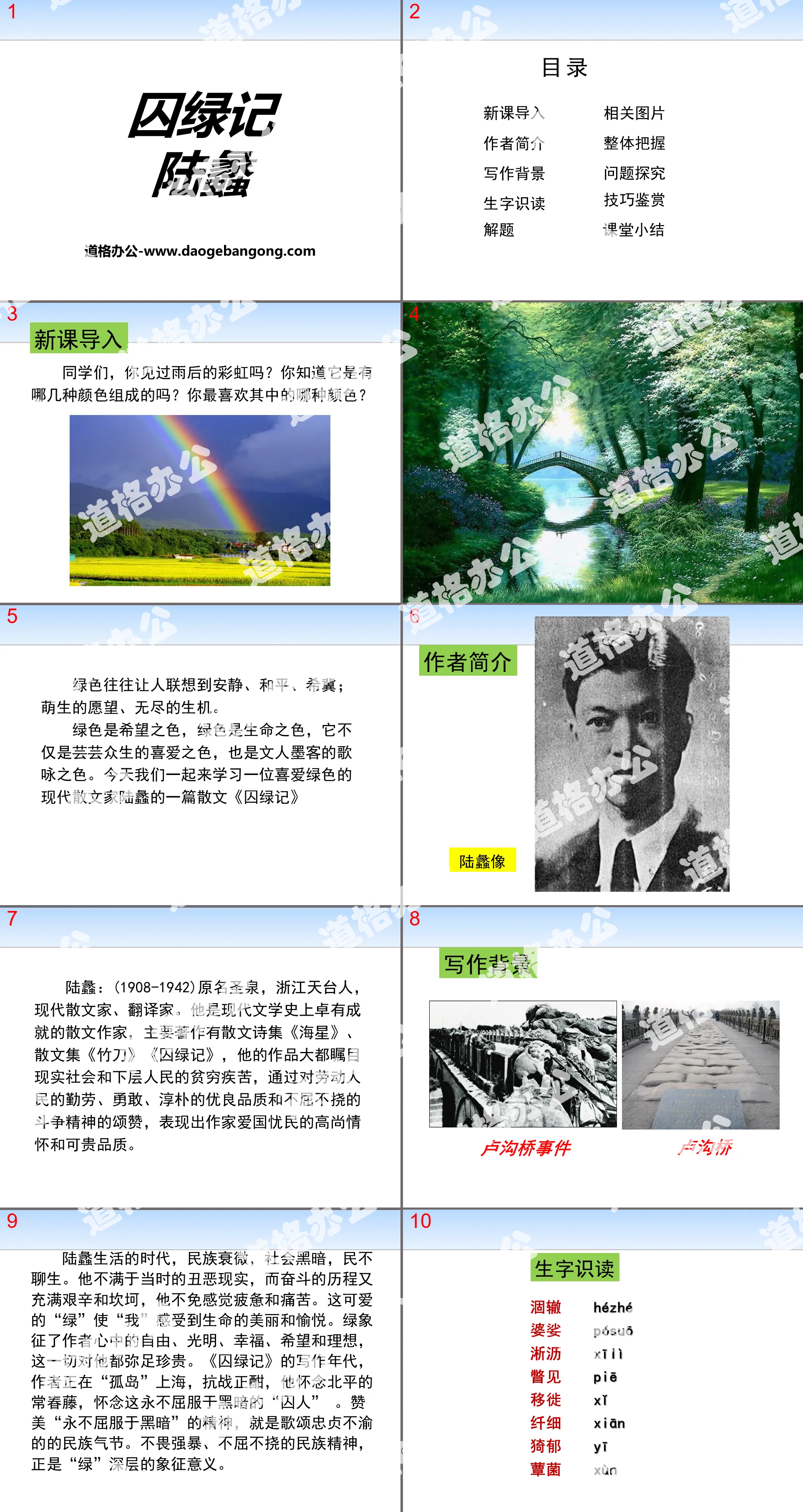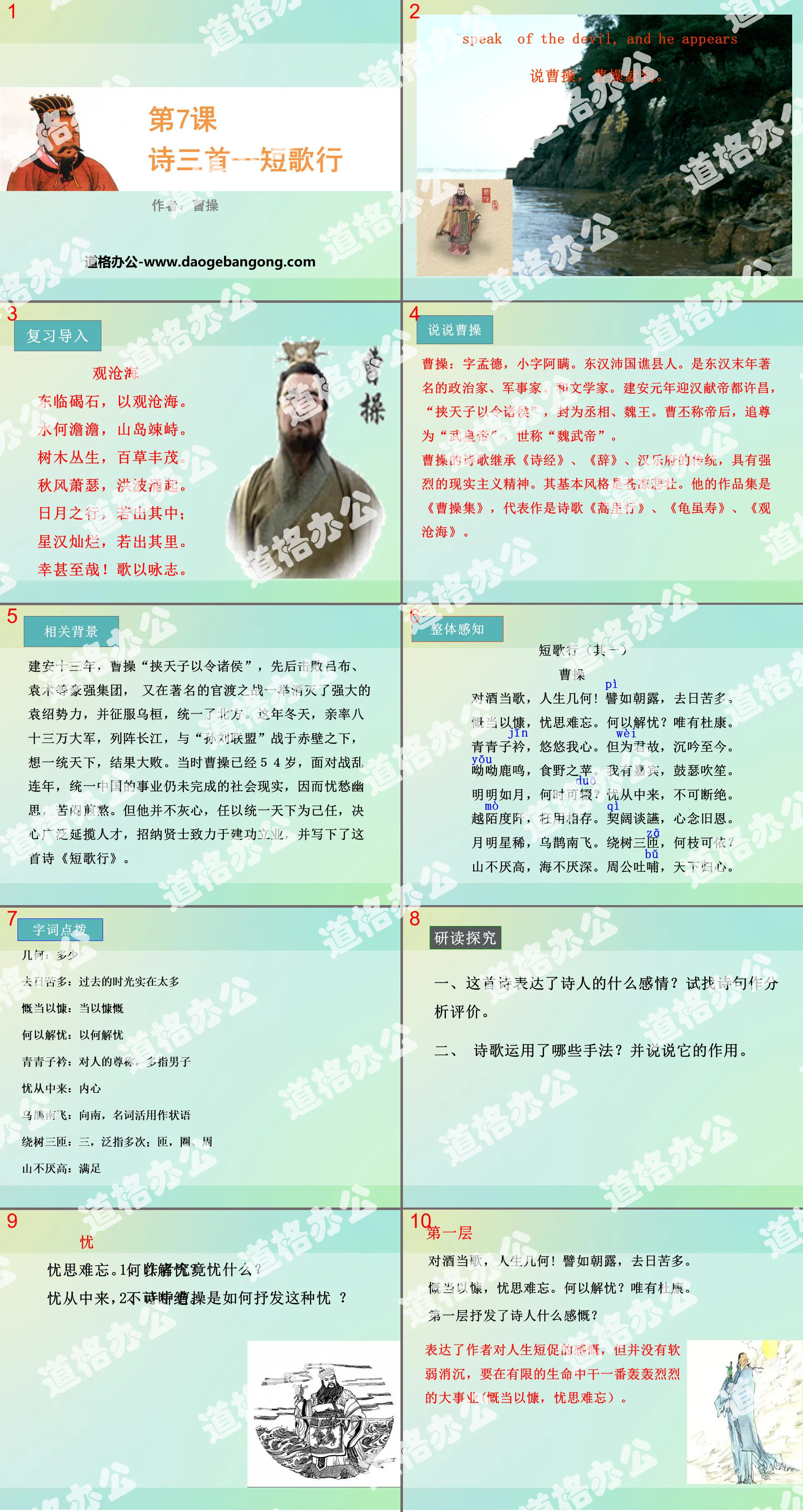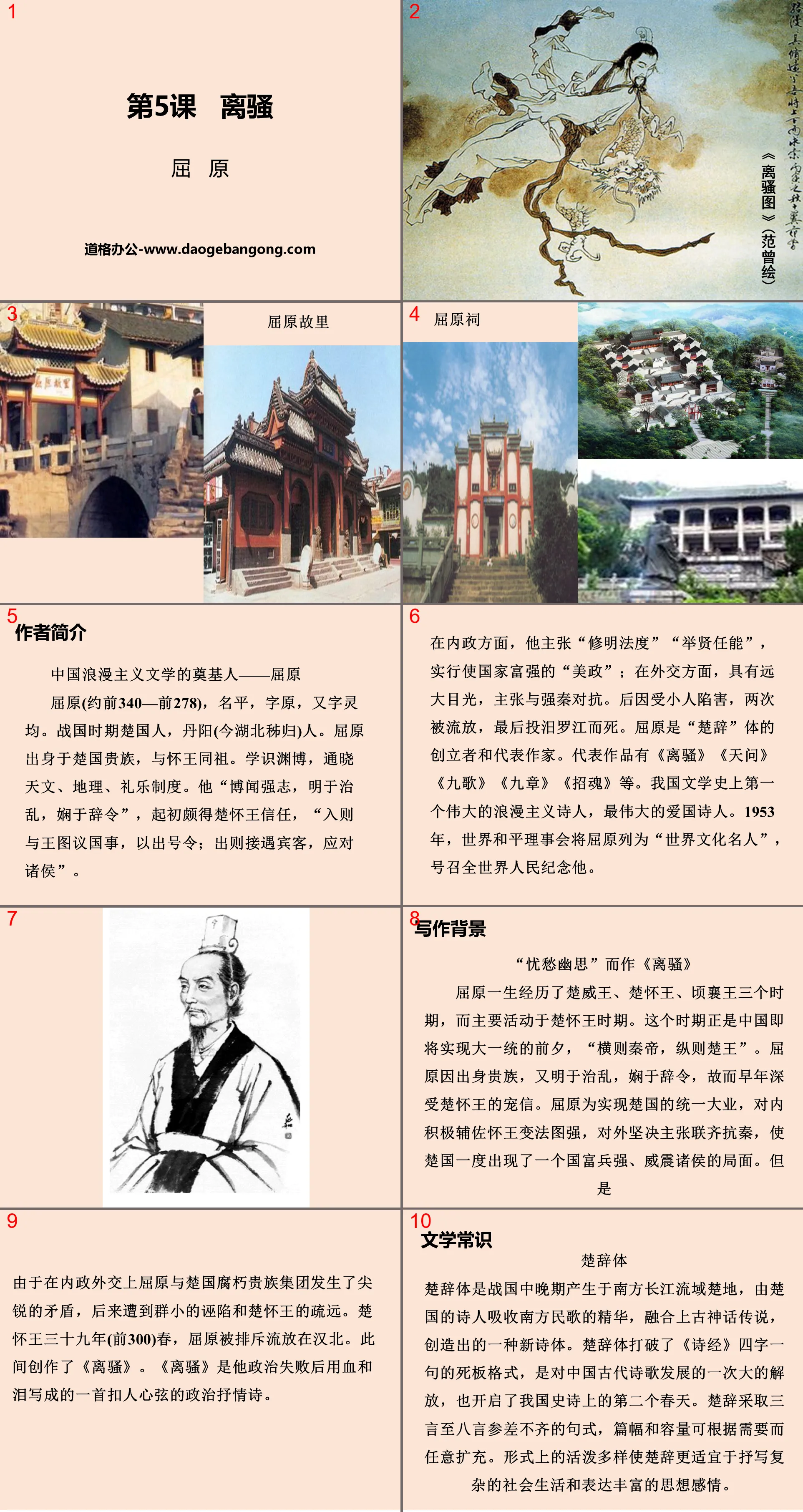"Moonlight over Lotus Pond" PPT Simple campus recruitment activity planning plan summary enterprise and institution recruitment publicity lecture PPT template is a general PPT template for business post competition provided by the manuscript PPT, simple campus recruitment activity planning plan summary enterprise and institution recruitment promotion Lecture PPT template, you can edit and modify the text and pictures in the source file by downloading the source file. If you want more exquisite business PPT templates, you can come to grid resource. Doug resource PPT, massive PPT template slide material download, we only make high-quality PPT templates!
| 文件名 如何下载使用 | 下载次数 | Download Points | 下载地址 |
|---|---|---|---|
| "Moonlight over Lotus Po... | 17550次 | 0.00 | Free Download |
Tips: If you open the template and feel that it is not suitable for all your needs, you can search for related content "Moonlight over Lotus Pond" PPT is enough.
How to use the Windows system template
Directly decompress the file and use it with office or wps
How to use the Mac system template
Directly decompress the file and use it Office or wps can be used
Related reading
For more detailed PPT-related tutorials and font tutorials, you can view: Click to see
How to create a high-quality technological sense PPT? 4 ways to share the bottom of the box
Notice
Do not download in WeChat, Zhihu, QQ, built-in browsers, please use mobile browsers to download! If you are a mobile phone user, please download it on your computer!
1. The manuscript PPT is only for study and reference, please delete it 24 hours after downloading.
2. If the resource involves your legitimate rights and interests, delete it immediately.
3. Contact information: service@daogebangong.com
"Moonlight over Lotus Pond" PPT, due to usage restrictions, it is only for personal study and reference use. For commercial use, please go to the relevant official website for authorization.
(Personal non-commercial use refers to the use of this font to complete the display of personal works, including but not limited to the design of personal papers, resumes, etc.)

Related reading
For more detailed PPT-related tutorials and font tutorials, you can view:Please click to see










Authoritative PPT Summary
"Moonlight over Lotus Pond" PPT
Part One: Importing Text
In the history of modern Chinese literature, there is a writer who was unyielding. Mao Zedong said in "Farewell, Leighton Stuart" that he "was seriously ill and would rather starve to death than receive relief food from the United States" and "exhibited the heroic spirit of our nation." He is Zhu Ziqing, a master prose writer, poet, scholar, and democracy fighter who wrote famous works such as "Back" and "Green". Today we study another of his famous prose works, "Moonlight over the Lotus Pond".
About the Author
Zhu Ziqing (1898-1948), whose original name was Zihua, also had the courtesy name Peixian and the nickname Qiushi. His ancestral home is Shaoxing, Zhejiang, and he was born in Donghai, Jiangsu in 1898. In 1903, he settled in Yangzhou with his family, so he called himself "I am from Yangzhou".
He received a traditional education from a scholar-bureaucrat family when he was young. In 1916, he was admitted to the preparatory class of Peking University. The following year, he changed his name to "Ziqing" and entered the philosophy department. After graduating in 1920, he taught in middle schools in Jiangsu and Zhejiang areas and was extremely popular. In 1925, he was appointed professor of the Chinese Department of Tsinghua University. From 1931 to 1932, he studied linguistics and English literature in London, England. After returning to China, he still served as a professor and director of the Chinese Department of Tsinghua University. He died of illness in Beijing in August 1948.
Author of "The Complete Works of Zhu Ziqing". Representative works: long poem "Destruction", poetry collection "Traces", essay collection "Back", etc.
On June 18, 1948, Zhu Ziqing signed a statement rejecting "US aid" and "US aid flour."
On June 19, major newspapers in Pingjin and Tianjin published a solemn statement signed by 110 teachers including Zhu Ziqing.
On August 12, 1948, Zhu Ziqing died due to ineffective treatment.
Lotus Pond Moonlight PPT, Part 2: Creative Background
This article was written in July 1927, when the white terror enveloped the land of China.
Faced with "the changes of this year", Zhu Ziqing felt that "human imagination cannot catch up". He believes: “When the old era is collapsing and the new situation has not yet arrived, decline and turmoil have made everyone panic... Only by participating in revolution or counter-revolution can this panic be resolved. When you are unable or unwilling to participate in such practical actions, There is only one way to escape temporarily... Among these three roads, which one will I choose?... I can neither join the revolution nor the counter-revolution, so I have to find a basis so that I can live with peace of mind... I finally found my way into Chinese studies I found a topic." ("Go There") "There seems to be something abnormal in my heart these days...My heart is a mess, it can also be said to be a ball of fire. It seems to be struggling to understand something, but it seems that what I don’t understand either.” (“A Letter”)
In short, at this time, Zhu Ziqing was disgusted with the Kuomintang's "counterrevolution" and had doubts about the Communist Party's revolution. I fell into the "panic" of not knowing "where to go".
Moonlight in the Lotus Pond PPT, Part 3: Text Analysis
1. How to understand the title "Moonlight over Lotus Pond"
Lotus pond: refers to the lotus pond in the Tsinghua Garden of Tsinghua University in Beijing where Mr. Zhu Ziqing taught at that time. It is the specific place to be described in this article.
Moonlight: Moonlight. It marked the time, it was a moonlit night. Moonlight is the center of the article's description. It is the harmonious and tranquil realm that the author longs for and pursues.
2. Which paragraphs in the text describe the lotus pond? What else was written before and after? Draw something mentioned or described.
The fourth, fifth and sixth paragraphs of this article describe the lotus pond.
The objects described by the author in sequence are: (leaving) home - Cinder Road (around the lotus pond) - (under the moon) the lotus pond - (on the lotus pond) moonlight - around the lotus pond - picking lotus in the south of the Yangtze River - (returning) home
This article is about what the author saw, heard and thought while walking around the lotus pond.
Moonlight in the Lotus Pond PPT, Part 4: Questions to explore the changes in the character's mood
1. How do you understand "I have been quite uneasy these days"?
It is generally believed that this sentence is "wenyan" which sets the emotional tone of the whole text. The so-called "literary eye" is a summary of the experience in prose creation in my country. The ancients said, "The point of revealing the full text may be at the beginning, middle, or end of the film." Prose has an "eye", so that the artistic conception will have reality and reality, and the theme will be looming. The first sentence "I feel quite uneasy" is a "simple sentence" that "sets up a short sentence to serve as a warning for an article." The next three sentences naturally break the topic and point out "lotus pond" and "moonlight". . Because "I felt quite uneasy", I thought of the lotus pond and went to the lotus pond at night. This "literary eye" is placed at the beginning of the film, like the final word, setting the lyrical tone for the entire text.
As for the reason for Zhu Ziqing's "unquiet" mood, some people think it stems from the resentment against Chiang Kai-shek's April 12 counter-revolutionary coup; others think it stems from the author's homesickness, because at the end the author said, "This makes me miss Jiangnan after all"; Some people think that it stems from the author's depression and hesitation as a petty bourgeois intellectual facing a crossroads in life; some even believe that Zhu Ziqing's "unrest" stems from the disharmony of family life, based on some historical data; so etc.
There is no need to prescribe a single authoritative answer to this question. And precisely because of this, "Moonlight over the Lotus Pond" will become a long-read hazy poem. Every reader in the past, today and in the future will read the same poem "Moonlight over the Lotus Pond" due to factors such as age, experience, and the era in which they live. Read out your own piece of moonlight over a lotus pond in "Moonlight".
2. What changes have occurred in the author’s mood after he came out of home? Please draw words that reveal emotional changes and see how the author's emotions have changed.
Cinder Road: secluded, lonely, gloomy, and afraid of people, but tonight is very good (a free person, the beauty of being alone), I will just enjoy the boundless lotus fragrance and moonlight (connecting the previous to the next)
(under the moon) lotus pond
(Lotus Pond) Moonlight
(Lotus pond) all around - (lights) are listless, the excitement is theirs, I have nothing
(Jiangnan) Lotus Picking—Lively, romantic, and interesting, but unfortunately not blessed to enjoy it
(go) home - no sound
Lotus Pond Moonlight PPT, Part 5: Summary
From the above analysis, we can see that the author watched the moonlight over the lotus pond because of his inner pain and troubles. When he faced the lotus pond, he also felt a touch of joy, but this joy quickly disappeared as he left the lotus pond. His attempt to escape the troubles of reality by enjoying the beautiful scenery not only failed to come true, but instead plunged him into deeper pain. This article reflects the author's dissatisfaction with the harsh reality at that time, as well as his depression and hesitation, and the contradictory mood of hoping to seek spiritual relief in a quiet environment but being unable to do so. It expresses his thoughts and feelings about the future and destiny of the country and the pursuit of freedom. .
Moonlight in the Lotus Pond PPT, Part Six: Appreciation of Words and Sentences
1. "I love liveliness, but also calmness; I love being in groups, but also love being alone." Is it a bit contradictory?
There is a contrast between "lively" and "calm", "living in groups" and "alone". The whole sentence euphemistically expresses the author's dissatisfaction with the dark reality and the faint sadness caused by not being understood.
When practicing writing, under this vast moonlight, I can think about anything and think about nothing, and I feel like a free person. Whatever I must do or say during the day can be ignored now. This is the beauty of being alone.
"Feijue" is just a subjective feeling. There is a gap and contradiction between the momentary feeling of this "free person" and the "ordinary self". This sentence shows that the author wants to escape from the annoying mortal world and seek short-term peace and freedom.
2. The use of repeated words
Far and near
high high low low
It depicts the well-proportioned arrangement of trees, which is both open and three-dimensional, and the language is plain and natural.
heavy
Yin Yin
vaguely
It vividly describes the characteristics of the scenery in a specific environment, not only describing the number of trees, but also enhancing the thick atmosphere of the night.
The use of overlapping words not only vividly describes the characteristics of things, but also echoes the "luxuriant" trees and "gloomy" paths in the second paragraph, which makes the reading rhythmic and full of musical beauty.
3. Characteristics of landscape description
First, blend the emotions into the scenery and blend the scenes. The author skillfully integrates his feelings at this time into the description of the objects in front of him, achieving the effect of blending the scenes.
Second, focus on the combination of static and dynamic to make the lotus pond "alive". Moreover, the scenery described by the author is all "moving", and "stillness" is just the momentary expression of movement. Movement and stillness set off each other, showing their different beauty.
Third, grasp the combination of virtuality and reality to write the charm of prose. The scenery described by the author through imagination and association is characterized by "virtuality". The description of the objective characteristics of the objects in front of you is "real"
Keywords: Free download of PPT courseware for high school Chinese compulsory course 2 of the People's Education Press, download of Moonlight in the Lotus Pond PPT, .PPT format;
For more information about the "Moonlight over the Lotus Pond" PPT courseware, please click on the "Moonlight Over the Lotus Pond" ppt tag.
"Moonlight over the Lotus Pond" PPT courseware download:
"Moonlight over the Lotus Pond" PPT courseware download Part One: Literacy Objectives 1. Understand the writing background of the article, grasp the characteristics of the scenery described by the author, and experience the author's emotional changes. 2. Taste and appreciate the language in the text, and figure out the meaning and rhetorical effect of important sentences;..
"Autumn in the Old Capital" "*Moonlight over the Lotus Pond" PPT courseware:
"Autumn in the Old Capital" and "*Moonlight over the Lotus Pond" PPT courseware The first part of the content: [Reading Aid Expo] 1. Charming Writer 1. Yu Dafu, a wandering guest in the rivers and lakes Yu Dafu (18961945), a modern writer. His original name is Yu Wen, a native of Fuyang, Zhejiang. He studied in Japan and was deeply influenced by modern European and American...
"Autumn in the Old Capital" "*Moonlight over the Lotus Pond" PPT:
"Autumn in the Old Capital" "*Moonlight over the Lotus Pond" PPT Part One Content: Independent study before class Autumn in the Old Capital 1. Know the author Yu Dafu, a patriotic writer who resisted Japan and saved the country ① Yu Dafu (18961945), formerly known as Yu Wen, courtesy name Dafu. In 1922, he formed a group with Guo Moruo, Cheng Fangwu and others..